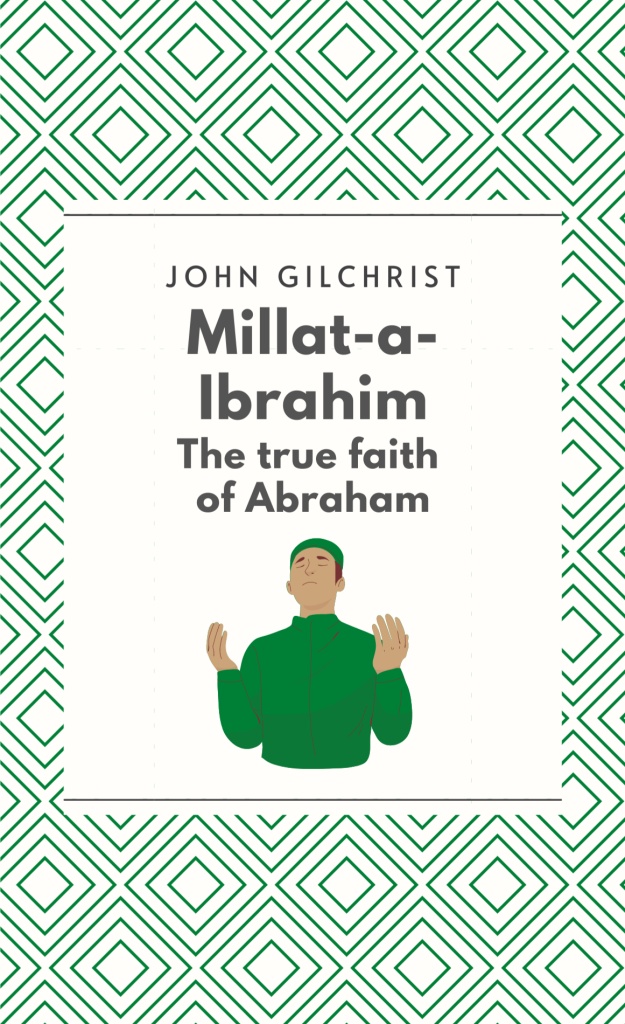Abraham - The Friend of God
Millat-a-Ibrahim: The True Faith of Abraham


Chapters
Our first point of agreement relates to a title given to Abraham which is found in all three of the sacred scriptures of each respective religion, namely the close Friend of God. In the Jewish Scriptures, the Tawraat (which Christians commonly call the Old Testament), he is twice so described. On one occasion the upright king of Judea, Jehoshaphat, prayed to God in these words:
"Didst thou not, 0 our God, drive out the inhabitants of this land before thy people Israel, and give it for ever to the descendants of Abraham thy friend?" 2 Chronicles 20:7
In another very similar passage we find that God himself spoke from heaven and openly acknowledged that Abraham was his friend:
"You, Israel, my servant, Jacob, whom I have chosen, the offspring of Abraham, my friend". Isaiah 41:8
The Jews, therefore, have always believed that Abraham was not just a servant of God but also his friend, meaning that a very intimate relationship existed between them and that God was willing to communicate with him on a far more familiar level than that of master to servant.
In the Christian Scriptures, the Injil (which Christians commonly call the Now Testament), we find that Abraham is again described and recognised as the friend of God. The verse roads:
The scripture was fulfilled which says, "Abraham believed God, and it was reckoned to him as righteousness"; and he was called the friend of God. James 2:23
Significantly Islam also recognises that Abraham was, in a special way, the friend of God. Whereas Muhammad is called in Islam the "messenger of God" (rasulullah), and David is called the "vicegerent of God" (khalifatullah), with Moses being designated the "word of God" (kalimatullah) and Jesus the "spirit of God" (ruhullah), so in turn the specific title given to Abraham in Islam is the "friend of God" (kalilullah). The title duly appears in the following verse of the Muslim Scriptures, the Qur'an:
For God did take Abraham for a friend. Quran 4.125
Just as Judaism and Christianity therefore acknowledge him to be the friend of God, so the Qur'an states explicitly that the great prophet Ibrahim was duly taken by Allah to be his very own friend, his khalil.
What is the implication of this title? Clearly it has a very special significance. It obviously implies that Abraham was not just a willing servant of God to whom God gave commands which the prophet summarily obeyed, nor was he purely a prophet to whom God dictated re-velations through the medium of an angel. He had a very close relationship with God, so close and so intimate that God was willing to confide in him, share his secrets with him, and even trust himself to him. A common bond of loyalty and mutual trust clearly existed between them, for this is the true meaning of friendship. A beautiful example of the distinction between a servant and a friend was given by Jesus Christ when he said:
"No longer do I call you servants, for the servant does not know what his master is doing; but I have called you friends, for all that I have heard from my Father I have made known to you". John 15:15
In the same way we must presume that if God was willing to take Abraham as his friend, this means that he was willing to confide in him and let him know many of his deepest counsels and purposes that he would not otherwise reveal to someone who was only his servant. We must conclude, therefore, that in a unique way God revealed to Abraham his plans and decrees for the future, confiding in him as a loyal and trusted friend who would believe in his revelations and faithfully and loyally preserve them for the generations to come.
Our study of the first point of agreement between Judaism, Christianity and Islam relating to the prophetic office of the great patriarch Abraham, therefore, has laid a sure foundation on which to build and from which we can explore the nature of his relationship to God. Before doing so, however, let us proceed to analyse the other two points of agreement so that the foundation may first be completed.